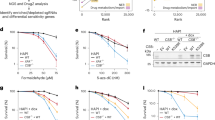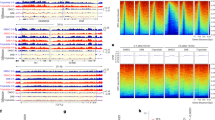Abstract
The DNA glycosylase MUTYH (mutY homolog (Escherichia coli)) counteracts the mutagenic effects of 8-oxo-7,8-dihydroguanine (8-oxodG) by removing adenine (A) misincorporated opposite the oxidized purine. Biallelic germline mutations in MUTYH cause the autosomal recessive MUTYH-associated adenomatous polyposis (MAP). Here we designed new tools to investigate the biochemical defects and biological consequences associated with different MUTYH mutations in human cells. To identify phenotype(s) associated with MUTYH mutations, lymphoblastoid cell lines (LCLs) were derived from seven MAP patients harboring missense as well as truncating mutations in MUTYH. These included homozygous p.Arg245His, p.Gly264TrpfsX7 or compound heterozygous variants (p.Gly396Asp/Arg245Cys, p.Gly396Asp/Tyr179Cys, p.Gly396Asp/Glu410GlyfsX43, p.Gly264TrpfsX7/Ala385ProfsX23 and p.Gly264TrpfsX7/Glu480del). DNA glycosylase assays of MAP LCL extracts confirmed that all these variants were defective in removing A from an 8-oxoG:A DNA substrate, but retained wild-type OGG1 activity. As a consequence of this defect, MAP LCLs accumulated DNA 8-oxodG in their genome and exhibited a fourfold increase in spontaneous mutagenesis at the PIG-A gene compared with LCLs from healthy donors. They were also hypermutable by KBrO3—a source of DNA 8-oxodG—indicating that the relatively modest spontaneous mutator phenotype associated with MUTYH loss can be significantly enhanced by conditions of oxidative stress. These observations identify accumulation of DNA 8-oxodG and a mutator phenotype as likely contributors to the pathogenesis of MUTYH variants.
This is a preview of subscription content, access via your institution
Access options
Subscribe to this journal
Receive 50 print issues and online access
$259.00 per year
only $5.18 per issue
Buy this article
- Purchase on Springer Link
- Instant access to full article PDF
Prices may be subject to local taxes which are calculated during checkout







Similar content being viewed by others
References
David SS, O’Shea VL, Kundu S . Base-excision repair of oxidative DNA damage. Nature 2007; 447: 941–950.
van Loon B, Markkanen E, Hübscher U . Oxygen as a friend and enemy: How to combat the mutational potential of 8-oxo-guanine. DNA Repair (Amst) 2010; 9: 604–616.
Oka S, Nakabeppu Y . DNA glycosylase encoded by MUTYH functions as a molecular switch for programmed cell death under oxidative stress to suppress tumorigenesis. Cancer Sci 2011; 102: 677–682.
Slupska MM, Luther WM, Chiang JH, Yang H, Miller JH . Functional expression of hMYH, a human homolog of the Escherichia coli MutY protein. J Bacteriol 1999; 181: 6210–6213.
Al-Tassan N, Chmiel NH, Maynard J, Fleming N, Livingston AL, Williams GT et al. Inherited variants of MYH associated with somatic G:C-->T:A mutations in colorectal tumors. Nat Genet 2002; 30: 227–232.
Jones S, Emmerson P, Maynard J, Best JM, Jordan S, Williams GT et al. Biallelic germline mutations in MYH predispose to multiple colorectal adenoma and somatic G:C-->T:A mutations. Hum Mol Genet 2002; 11: 2961–2967.
Sieber OM, Lipton L, Crabtree M, Heinimann K, Fidalgo P, Phillips RK et al. Multiple colorectal adenomas, classic adenomatous polyposis, and germ-line mutations in MYH. N Engl J Med 2003; 348: 791–799.
Poulsen ML, Bisgaard ML . MUTYH associated polyposis (MAP). Curr Genomics 2008; 9: 420–435.
Jasperson KW, Tuohy TM, Neklason DW, Burt RW . Hereditary and familial colon cancer. Gastroenterology 2010; 138: 2044–2058.
Wang L, Baudhuin LM, Boardman LA, Steenblock KJ, Petersen GM, Halling KC et al. MYH mutations in patients with attenuated and classic polyposis and with young-onset colorectal cancer without polyps. Gastroenterology 2004; 127: 9–16.
Farrington SM, Tenesa A, Barnetson R, Wiltshire A, Prendergast J, Porteous M et al. Germline susceptibility to colorectal cancer due to base-excision repair gene defects. Am J Hum Genet 2005; 77: 112–119.
Cardoso J, Molenaar L, de Menezes RX, van Leerdam M, Rosenberg C, Möslein G et al. Chromosomal instability in MYH- and APC-mutant adenomatous polyps. Cancer Res 2006; 66: 2514–2519.
Cleary SP, Cotterchio M, Jenkins MA, Kim H, Bristow R, Green R et al. Germline MutY human homologue mutations and colorectal cancer: a multisite case-control study. Gastroenterology 2009; 136: 1251–1260.
Out AA, Tops CM, Nielsen M, Weiss MM, van Minderhout IJ, Fokkema IF et al. Leiden open variation database of the MUTYH gene. Hum Mutat 2010; 31: 1205–1215.
Gismondi V, Meta M, Bonelli L, Radice P, Sala P, Bertario L et al. Prevalence of the Y165C, G382D and 1395delGGA germline mutations of the MYH gene in Italian patients with adenomatous polyposis coli and colorectal adenomas. Int J Cancer 2004; 109: 680–684.
Isidro G, Laranjeira F, Pires A, Leite J, Regateiro F, Castro e Sousa F et al. Germline MUTYH (MYH) mutations in Portuguese individuals with multiple colorectal adenomas. Hum Mutat 2004; 24: 353–354.
Cheadle JP, Sampson JR . MUTYH-associated polyposis--from defect in base excision repair to clinical genetic testing. DNA Repair (Amst) 2007; 6: 274–279.
Molatore S, Russo MT, D’Agostino VG, Barone F, Matsumoto Y, Albertini AM et al. MUTYH mutations associated with familial adenomatous polyposis: functional characterization by a mammalian cell-based assay. Hum Mutat 2010; 31: 159–166.
Pin E, Pastrello C, Tricarico R, Papi L, Quaia M, Fornasarig M et al. MUTYH c. 933+3A>C, associated with a severely impaired gene expression, is the first Italian founder mutation in MUTYH-associated polyposis. Int J Cancer (e-pub ahead of print 3 August 2012; doi:10.1002/ijc.27761).
Russo MT, De Luca G, Casorelli I, Degan P, Molatore S, Barone F et al. Role of MUTYH and MSH2 in the control of oxidative DNA damage, genetic instability, and tumorigenesis. Cancer Res 2009; 69: 4372–4379.
Araten DJ, Golde DW, Zhang RH, Thaler HT, Gargiulo L, Notaro R et al. A quantitative measurement of the human somatic mutation rate. Cancer Res 2005; 65: 8111–8117.
Peruzzi B, Araten DJ, Notaro R, Luzzatto L . The use of PIG-A as a sentinel gene for the study of the somatic mutation rate and of mutagenic agents in vivo. Mutat Res 2010; 705: 3–10.
Alhopuro P, Parker AR, Lehtonen R, Enholm S, Mecklin JP, Karhu A et al. A novel functionally deficient MYH variant in individuals with colorectal adenomatous polyposis. Hum Mutat 2005; 26: 393–402.
Parker AR, Sieber OM, Shi C, Hua L, Takao M, Tomlinson IP et al. Cells with pathogenic biallelic mutations in the human MUTYH gene are defective in DNA damage binding and repair. Carcinogenesis 2005; 26: 2010–2018.
Gu Y, Lu AL . Differential DNA recognition and glycosylase activity of the native human MutY homolog (hMYH) and recombinant hMYH expressed in bacteria. Nucleic Acids Res 2001; 29: 2666–2674.
Yanaru-Fujisawa R, Matsumoto T, Ushijima Y, Esaki M, Hirahashi M, Gushima M et al. Genomic and functional analyses of MUTYH in Japanese patients with adenomatous polyposis. Clin Genet 2008; 73: 545–553.
Ali M, Heja K, Cleary S, Cupples C, Galllinger S, Bristow R . Characterization of mutant MUTYH proteins associated with familial colorectal cancer. Gastroenterology 2008; 135: 499–507.
Kundu S, Brinkmeyer MK, Livingston AL, David SS . Adenine removal activity and bacterial complementation with the human MutY homologue (MUTYH) and Y165C, G382D, P391L and Q324R variants associated with colorectal cancer. DNA Repair (Amst) 2009; 8: 1400–1410.
Goto M, Shinmura K, Nakabeppu Y, Tao H, Yamada H, Tsuneyoshi T et al. Adenine DNA glycosylase activity of 14 human MutY homolog (MUTYH) variant proteins found in patients with colorectal polyposis and cancer. Hum Mutat 2010; 31: E1861–E1874.
D'Agostino VG, Minoprio A, Torreri P, Marinoni I, Bossa C, Petrucci TC et al. Functional analysis of MUTYH mutated proteins associated with familial adenomatous polyposis. DNA Repair (Amst) 2010; 9: 700–707.
Bai H, Grist S, Gardner J, Suthers G, Wilson TM, Lu AL . Functional characterization of human MutY homolog (hMYH) missense mutation (R231L) that is linked with hMYH-associated polyposis. Cancer Lett 2007; 250: 74–81.
Shi G, Chang DY, Cheng CC, Guan X, Venclovas C, Lu AL . Physical and functional interactions between MutY glycosylase homologue (MYH) and checkpoint proteins Rad9-Rad1-Hus1. Biochem J 2006; 400: 53–62.
Yi F, Saha A, Murakami M, Kumar P, Knight JS, Cai Q et al. Epstein-Barr virus nuclear antigen 3C targets p53 and modulates its transcriptional and apoptotic activities. Virology 2009; 388: 236–247.
Hirano S, Tominaga Y, Ichinoe A, Ushijima Y, Tsuchimoto D, Honda-Ohnishi Y et al. Mutator phenotype of MUTYH-null mouse embryonic stem cells. J Biol Chem 2003; 278: 38121–38124.
Lipton L, Halford SE, Johnson V, Novelli MR, Jones A, Cummings C et al. Carcinogenesis in MYH-associated polyposis follows a distinct genetic pathway. Cancer Res 2003; 63: 7595–7599.
van Puijenbroek M, Nielsen M, Tops CM, Halfwerk H, Vasen HF, Weiss MM et al. Identification of patients with (atypical) MUTYH-associated polyposis by KRAS2 c.34G>T prescreening followed by MUTYH hotspot analysis in formalin-fixed paraffin-embedded tissue. Clin Cancer Res 2008; 14: 139–142.
Glaab WE, Risinger JI, Umar A, Barrett JC, Kunkel TA, Tindall KR . Resistance to 6-thioguanine in mismatch repair-deficient human cancer cell lines correlates with an increase in induced mutations at the HPRT locus. Carcinogenesis 1998; 19: 1931–1937.
Xu XS, Narayanan L, Dunklee B, Liskay RM, Glazer PM . Hypermutability to ionizing radiation in mismatch repair-deficient, Pms2 knockout mice. Cancer Res 2001; 61: 3775–3780.
Sansom OJ, Bishop SM, Court H, Dudley S, Liskay RM, Clarke AR . Apoptosis and mutation in the murine small intestine: loss of Mlh1- and Pms2-dependent apoptosis leads to increased mutation in vivo. DNA Repair (Amst) 2003; 2: 1029–1039.
Bignami M, O'Driscoll M, Aquilina G, Karran P . Unmasking a killer: DNA O(6)-methylguanine and the cytotoxicity of methylating agents. Mutat Res 2000; 462: 71–82.
Chiera F, Meccia E, Degan P, Aquilina G, Pietraforte D, Minetti M et al. Overexpression of human NOX1 complex induces genome instability in mammalian cells. Free Radic Biol Med 2008; 44: 332–342.
Acknowledgements
The authors are grateful to Drs M Fornasarig and D Barana for patient recruitment. This work has been supported by grants to MB from NIH/ISS, AIRC and by Ministero della Salute Alleanza contro il Cancro to AV and MB.
Author information
Authors and Affiliations
Corresponding author
Ethics declarations
Competing interests
The authors declare no conflict of interest.
Additional information
Supplementary Information accompanies the paper on the Oncogene website
Rights and permissions
About this article
Cite this article
Ruggieri, V., Pin, E., Russo, M. et al. Loss of MUTYH function in human cells leads to accumulation of oxidative damage and genetic instability. Oncogene 32, 4500–4508 (2013). https://doi.org/10.1038/onc.2012.479
Received:
Revised:
Accepted:
Published:
Issue Date:
DOI: https://doi.org/10.1038/onc.2012.479
Keywords
This article is cited by
-
8-Oxoguanine: from oxidative damage to epigenetic and epitranscriptional modification
Experimental & Molecular Medicine (2022)
-
MUTYH-associated tumor syndrome: The other face of MAP
Oncogene (2022)
-
Increased prevalence of Barrett’s esophagus in patients with MUTYH-associated polyposis (MAP)
Familial Cancer (2020)
-
Novel variant of unknown significance in MUTYH in a patient with MUTYH-associated polyposis: a case to reclassify
Clinical Journal of Gastroenterology (2018)
-
Type and frequency of MUTYH variants in Italian patients with suspected MAP: a retrospective multicenter study
Journal of Human Genetics (2017)



